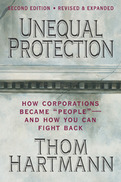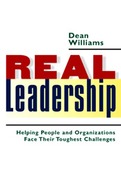World-renowned psychiatrist Viktor Frankl's Man's Search for Meaning is one of the most important books of modern times. Frankl's extraordinary personal story of finding meaning amid the horrors of the Nazi concentration camps has inspired millions. Frankl vividly showed that you always have the ultimate freedom to choose your attitude—you don't have to be a prisoner of your thoughts.
Dr. Alex Pattakos—who was urged by Frankl to write Prisoners of Our Thoughts—and Elaine Dundon, a personal and organizational innovation thought leader, show how Frankl's wisdom can help readers find meaning in every moment of their lives. Drawing on the entire body of Frankl's work, they identify seven “core principles” and demonstrate how they can be applied to everyday life and work.
This revised and expanded third edition features new stories, practical exercises, applications, and insights from the authors' new work in MEANINGology®. Three new chapters outline how we all can benefit by putting meaning at the core of our lives, work, and society. And a new chapter on Viktor Frankl's legacy illustrates how his work continues to influence so many around the world.
2006
- Provides a blueprint for entrepreneurs who want to grow their socially responsible business while remaining true to their principles
- Based on interviews with top executives at over thirty leading companies, including American Apparel, Give Something Back, Wild Planet Toys, Organic Valley Family of Farms, and Working Assets
- Offers nine key lessons that can be applied by businesses in any industry
2010
Americans have been struggling with the role of corporations since before the birth of the republic. As Thom Hartmann shows, the Boston Tea Party was actually a protest against the British East India Company—the first modern corporation. Unequal Protection tells the astonishing story of how, after decades of sensible limits on corporate power, an offhand, off-the-record comment by a Supreme Court justice led to the Fourteenth Amendment—originally passed to grant basic rights to freed slaves—becoming the justification for granting corporations the same rights as human beings. And Hartmann proposes specific legal remedies that will finally put an end to the bizarre farce of corporate personhood.
This new edition has been thoroughly updated and features Hartmann's analysis of two recent Supreme Court cases, including Citizens United v. Federal Election Commission, which tossed out corporate campaign finance limits.
2008
Fuller and Gerloff offer advice on the best ways to forcefully but compassionately bring rankist behavior to light. They include examples of rankism in action as well as the often surprisingly simple things people have done to counteract it. Perhaps most importantly, they show how we can prevent rankism from taking root in the first place. Dignity for All will help you map out your own personal strategy for creating a society in which every human being feels truly valued and respected.
Davis worked her way up to reporting on many of the most explosive stories of recent times, including the Vietnam War protests, the rise and fall of the Black Panthers, the Peoples Temple cult mass suicides at Jonestown, the assassinations of San Francisco Mayor George Moscone and Supervisor Harvey Milk, the onset of the AIDS epidemic, and the aftermath of the terrorist attacks that first put Osama bin Laden on the FBI's Most Wanted List. She encountered a cavalcade of cultural icons: Malcolm X, Frank Sinatra, James Brown, Ronald Reagan, Huey Newton, Muhammad Ali, Alex Haley, Fidel Castro, Dianne Feinstein, Condoleezza Rice, and others.
Throughout her career Davis soldiered in the trenches in the battle for racial equality and brought stories of black Americans out of the shadows and into the light of day. Still active in her seventies, Davis, the “Walter Cronkite of the Bay Area,” now hosts a weekly news roundtable and special reports at KQED, one of the nation's leading PBS stations,. In this way she has remained relevant and engaged in the stories of today, while offering her anecdote-rich perspective on the decades that have shaped us.
- The inspiring autobiography of an American pioneer
- Features vivid stories of Davis's encounters with famous people and historic events
- Honest, revealing, at times humorous, at times harrowinga deeply important document of our times.
As the first black female television journalist in the western United States, Belva Davis overcame racism and sexism and helped change the face and focus of television news. She shares the story of her extraordinary life in her poignantly honest memoir.
Davis is no stranger to adversity. Born to a fifteen-year-old Louisiana laundress during the Great Depression and raised in the overcrowded projects of Oakland, California, Davis suffered abuse, battled rejection, and persevered to achieve a career beyond her imagination. She has seen the world change in ways she never could have envisioned, from being verbally and physically attacked while reporting on the 1964 Republican National Convention in San Francisco to witnessing the historic election of Barack Obama in 2008.
Davis reported many of the most explosive stories of modern times, including the Vietnam War protests, the Black Panthers, the Peoples Temple cult mass suicides at Jonestown, the assassinations of San Francisco Mayor George Moscone and Supervisor Harvey Milk, the onset of the AIDS epidemicand from Africa, the aftermath of the terrorist attacks that first put Osama bin Laden on the FBIs Most Wanted List. She encountered a cavalcade of cultural icons: Malcolm X, Frank Sinatra, James Brown, Nancy Reagan, Huey Newton, Muhammad Ali,
Alex Haley, Fidel Castro, Dianne Feinstein, Condoleezza Rice, and others.
Belva Davis soldiered in the trenches in the battle for racial equality and brought stories of black Americans out of the shadows and into the light of day. Now in her seventies, the Walter Cronkite of the Bay Area hosts a weekly news roundtable and special reports at KQED, one of the nations leading PBS stations.
Click here for the press release
2005
- Presents a new, more effective approach to leadership: helping people to honestly face reality and deal with their most pressing problems, rather than imposing ideas and solutions on them
- Shows how to apply this new approach to six major organizational challenges
- Offers actual examples of real leadership in action



























